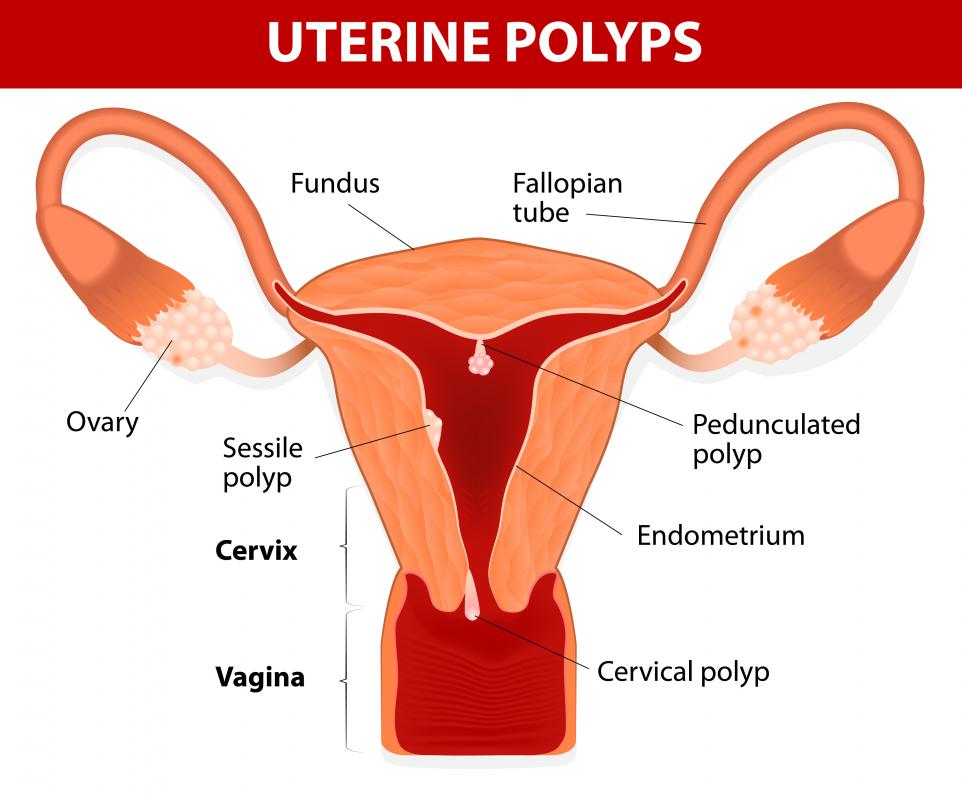At WiseGEEK, we're committed to delivering accurate, trustworthy information. Our expert-authored content is rigorously fact-checked and sourced from credible authorities. Discover how we uphold the highest standards in providing you with reliable knowledge.
What Are the Different Types of Polyp Treatment?
A polyp, which can develop on any mucous membrane in the human body, can be treated with medication, surgery, or watchful waiting. The type of polyp treatment a doctor choses to pursue depends largely on where the polyp is found, its size, and whether the doctor believes there is a risk that it will lead to serious complications in the future. For the vast majority of patients, polyps are treated through surgical removal and are biopsied in order to make sure they are not cancerous.
In many cases, it may be possible to leave a polyp alone. Many polyps do not cause any symptoms and are only discovered while a doctor is performing an unrelated procedure. If the doctor determines that the polyp does not increase a patient’s risk of developing cancer, he may decide to leave it alone. Polyp treatment may be required if the polyp indicates the presence of disease or if it is uncomfortable for the patient.

It is possible to treat some types of polyps with medication. Nasal polyps, in particular, respond well to drugs and can be completely eliminated or at least significantly diminished with the proper medication. A common medical polyp treatment is the use of corticosteroids, which may be given orally, topically, or by injection. Other anti-inflammatory drugs, such as leukotriene inhibitors, can be given to patients who cannot take or have not responded to corticosteroids.

Aside from medical polyp treatment, surgical removal of a polyp is also common. Most of the time, a doctor is able to remove the polyp under local anesthetic, by feeding scopes and cutting tools into the body cavity where the polyp is found. The polyp can be sliced off, which is usually the only treatment needed. Occasionally, it will return after it is cut off, and subsequent surgeries may be necessary.

For certain types of polyps, the area of the mucous membrane to which it is attached may need to be removed once the polyp is gone. This can be done when the polyp is removed and is usually done with a laser or by means of electrical current. This destroys the cells at the base of the polyp and usually keeps it from returning.
In severe cases, polyp treatment may include the removal of an entire organ. While most polyps are benign, those found to be cancerous may require a more serious operation. The uterus and the gallbladder can develop malignant polyps that can be safely removed from a patient. Procedures to remove these organs are rarely needed because the vast majority of polyps do not pose any serious health risk to the patient.
AS FEATURED ON:
AS FEATURED ON:















Discuss this Article
Post your comments